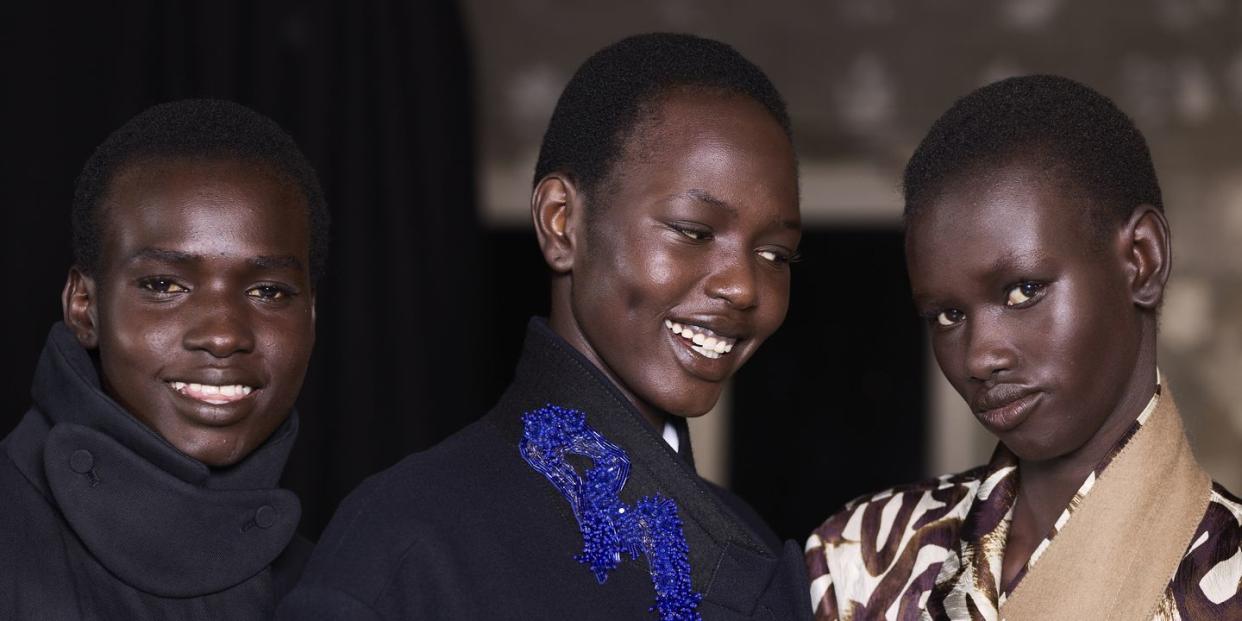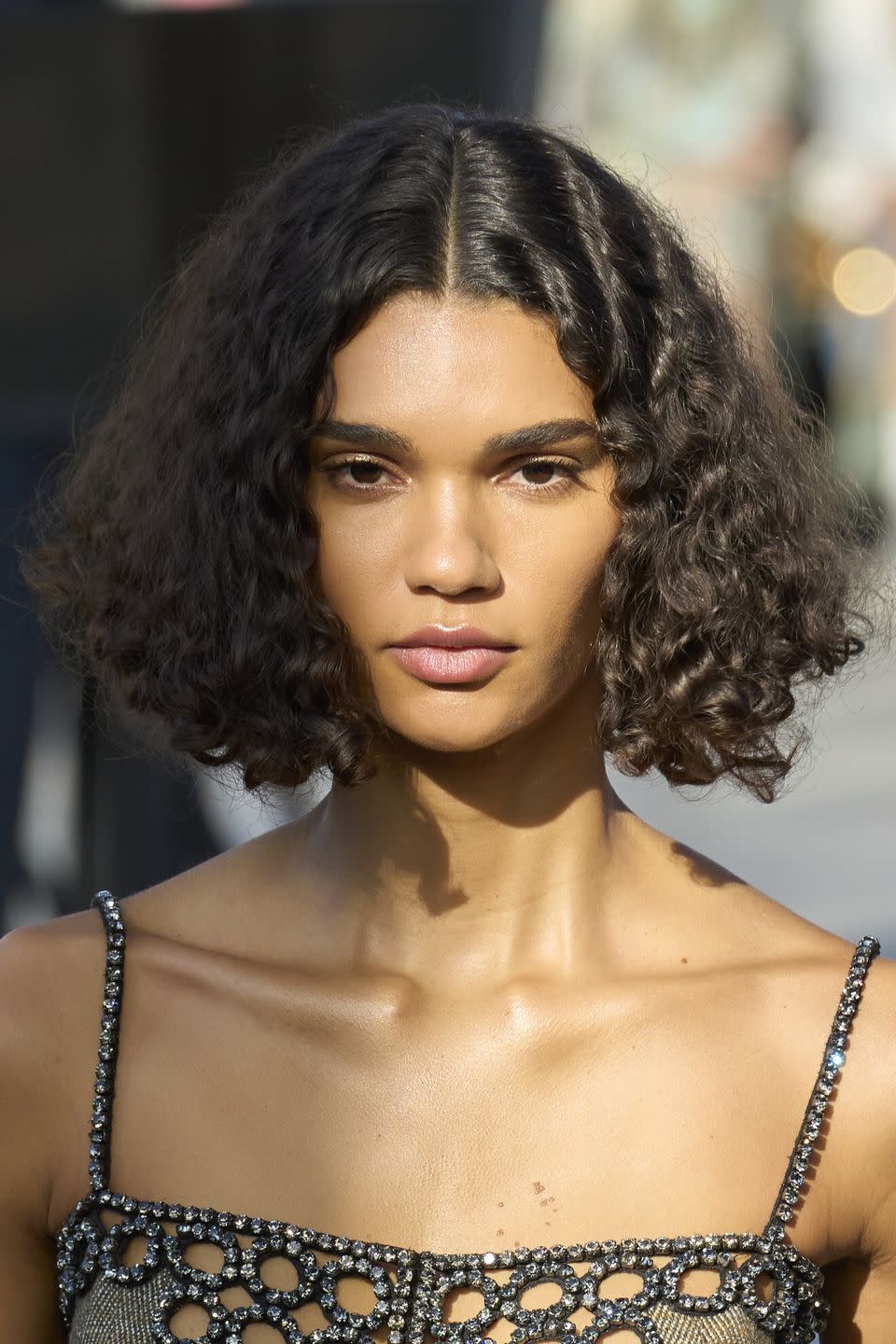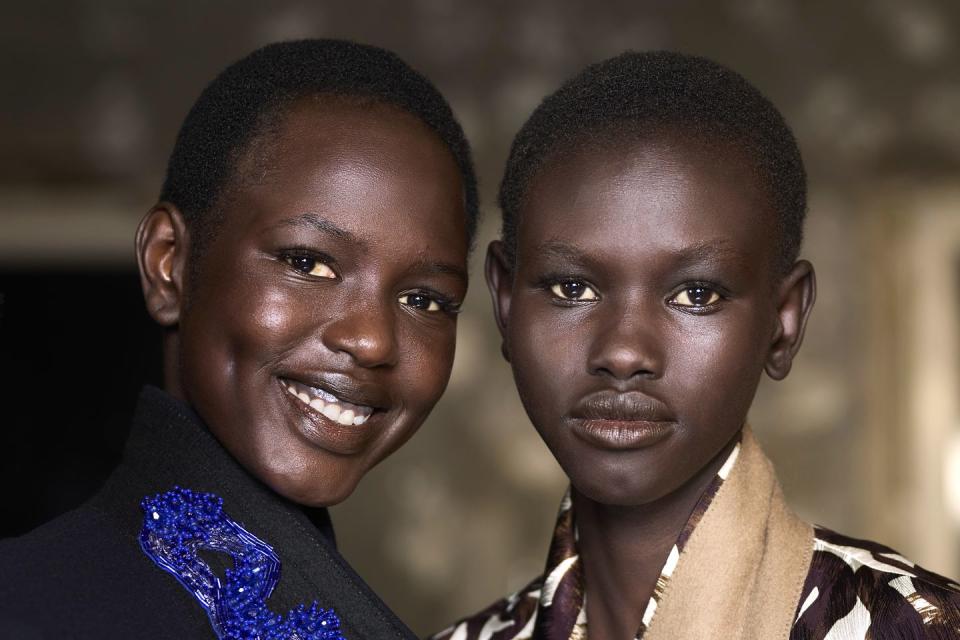Why Is There An Anti-Sunscreen Movement Bubbling Up Online?

As a Black woman, I've been told countless times that I don’t need to wear SPF. In fact, I’ve also heard that we actually need our skin to absorb the sun because Black people living in the UK often lack vitamin D (which is created by our bodies through sun exposure).
I can remember my mum slathering sunscreen on me as we sat on the beach when I was a child visiting family in Jamaica, but no matter how warm it got in the UK, sunscreen was never a permanent fixture. Fast forward to today and SPF still doesn’t remain a part of many Black people’s lives. More worrying still is that there's a new narrative steering us away from using it altogether.
Recent stats show that skin cancer is on the rise and while Black people are fewer in overall cases, they are more likely to die of skin cancer (that's because, it can be harder to spot and detected later on). Amid rising cases, why, then, is there an anti-sunscreen movement bubbling up online?
More melanin = less sunscreen?
For those of us with darker skin, the reasonings behind forgetting sunscreen can be listed off thick and fast. The more melanin in your skin, the less likely you are to burn compared to light skin. Similarly, the freckles and age spots we often associate with older skin is less likely, meaning it’s easier to negate the sun's impact. But just because we can't see it, it doesn’t mean it’s not happening. Put simply, having dark skin isn’t enough to stop the effects of the sun. 'While melanin does offer some protection, it is not sufficient to prevent all UV-induced damage, including skin cancer, premature ageing, and hyperpigmentation,' says Esther Olu, a cosmetic chemist and licensed aesthetician.
It's also worth noting that sun protection hasn't always catered for darker skin. Only more recently have we seen an uptick in formulas that don't leave skin looking ashy or grey. And, well, it’s easy to think that something isn’t for you when you’re left out of the making and marketing process of a product category. 'Sunscreen has been poorly formulated for Black skin for many years, often leaving a white cast which is cosmetically unacceptable,' says consultant dermatologist Dr Mary Sommerlad. This historically led to poor uptake, and, she says, 'was further compounded by sunscreen manufacturers having little interest in promoting or developing inclusive sunscreens.' It’s a sentiment echoed by Olu, who uses her Instagram account to show the true, and often disappointing finish on SPFs that are still frequently heralded as ‘invisible’.
As Olu says, 'due to a lot of misconceptions and misinformation about chemical sunscreens, mineral sunscreens are recommended to be the "best" choice for Black consumers,' she says. 'Mineral sunscreens fundamentally will always leave a white cast, which leads to the aforementioned problems. Cultural and community influences also play a role; if sunscreen use is not a common practice among peers and family, individuals are less likely to adopt it themselves.' It’s what stopped me from using SPF for most of my adult life: the collective and worrying narrative that ‘we' don’t need it.
Both Sommerlad and Dija Ayodele, the founder of Black Skin Directory and author of Black Skin, agree that it’s important to note that Black is an identity and not a skin colour, therefore the scope of multi-heritage people that identity as Black is broader than ever and generalisations can be unhelpful. 'It is very easy for someone who is mixed race but identifies themselves as Black to have inherited the propensity for skin cancer from their sort of English rose grandmother,' notes Ayodele.

Give me my Vitamin D
Melanin-rich bodies thrive in warmer, sunnier climates to that of the UK. Our ancestors come from climates that are sun-rich and temperatures that aren’t shiver-inducing, so living in an often cold and damp Northern hemisphere country doesn’t naturally sit well with our bodies.
Subsequently, many Black Brits have a vitamin D deficiency – but not wearing sunscreen in the UK will not fuel a sudden increase in vitamin D; it just leaves your skin unprotected from UV radiational damage. 'People read that sunlight helps the body to produce Vitamin D, and so they imagine that then if they block the sunlight from penetrating the skin they won’t make enough UVB,' notes Dr Sophie Shotter. 'In countries like the UK, our UVB levels are only high enough to stimulate Vitamin D production between May and September, and even in those months only those who spend very large amounts of time outdoors will make adequate vitamin D.' Because of this, she advises at least 3000U of Vitamin D3 every day to supplement deficiency.
There is of course still some confusion around how the body creates vitamin D and the best way to receive it. 'The science behind how the body makes vitamin D is quite complex and there isn’t a straightforward answer,' says Dr Sommerlad, who admits that safely getting vitamin D from sun exposure is more effective than a supplement. 'When sunscreen is used, UVB still manages to get into the skin to make the vitamin D. There are numerous, and conflicting scientific studies that show that for some people the vitamin D is higher, neutral or lower in those wearing sunscreen compared to those not wearing any.'

Protection scepticism
With contradictory, inconcrete scientific studies, paired with a collective feeling of being an afterthought within the product category, it’s no wonder consumers are turning to online communities and peers for guidance and support. It's something that Olu is seeing firsthand. 'On various platforms, influencers and other social media users are sharing their scepticism about the necessity and safety of sunscreen, often citing natural alternatives, fear-mongering websites that take data out of context or questioning the ingredients found in conventional sunscreens,' she explains. 'This scepticism is sometimes amplified by misinformation and anecdotal experiences that go viral, overshadowing scientific evidence.' Ayodele adds. 'I do think that social media creates a lot of confusion for consumers,' she says. 'I feel that the Black community, especially, is too young in the sunscreen conversation to start introducing this type of confusion and nuance… I think the confusion that social media creates is what makes people "anti sunscreen".'
So, what's the solution? Social media will never quieten down, and users feel emboldened by their following to share their hacks and subjective experiences on skipping sun protection. Dr Shotter believes that education is key. 'So much sun education is still needed, and I’m often shocked by the awful trends I see on social media. We need to educate people about good sunscreen use, sun avoidance during the peak of the day, and sun protective clothing, as well as the need for sunscreen even on less sunny days.' And that's especially true for Black skin - the understanding that melanin does not exempt you from the harmful effects of UV radiation needs to addressed.
A post shared by Black Skin Directory | Skincare Advice for People of Colour (@blackskindirectoryuk)
Though Ayodele has been advocating for the latter for a long time, she recently upped her campaign by handing out free SPF in London with the tagline 'Black people need sunscreen too'. A simple yet important statement, the more this message is ingrained into our community, the safer our skin will be. As Olu puts it, 'by incorporating SPF into their daily skincare routine, Black people can protect their skin from harmful UV rays, maintain skin health, and prevent both short-term and long-term damage.'
ELLE Collective is a new community of fashion, beauty and culture lovers. For access to exclusive content, events, inspiring advice from our Editors and industry experts, as well the opportunity to meet designers, thought-leaders and stylists, become a member today HERE.
You Might Also Like


